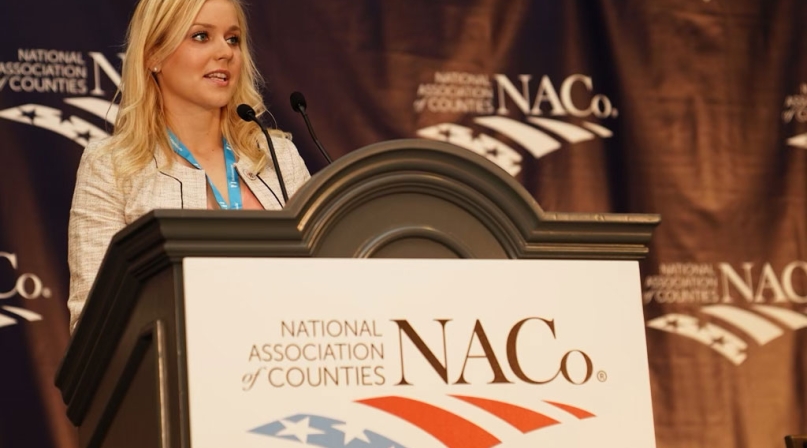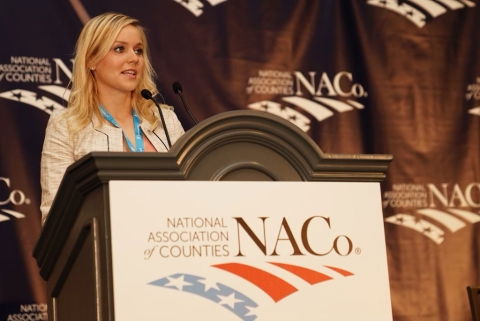Supporting America’s Heroes

Key Takeaways
Members of NACo’s Veterans and Military Services Committee heard Saturday about how they can help caregivers in their counties.
The Hidden Heroes Cities & Counties program was founded in 2012 by Sen. Elizabeth Dole, helping the country’s 5.5 million caregivers who provide more than $14 billion in uncompensated care, according to Laurel Haxton, who serves as the Elizabeth Dole Foundation’s community engagement manager, where she oversees the program. The campaign is chaired by actor Tom Hanks.
“It’s not a one-size-fits-all,” Haxton told county officials. “We realize each county has its specific needs. The program can help pinpoint your needs.”
In her role, Haxton helps implement and expand the program by engaging caregivers, community partners and elected officials across the country. The program establishes a national registry for caregivers to connect to helpful resources.
“I urge you to work to bring this program to your county,” said Haxton, who oversees the Hidden Heroes Cities & Counties program.
The foundation established the program for cities and counties to help find solutions for caregivers, working with NACo and the U.S. Conference of Mayors.
Counties can take the first step by passing a resolution or proclamation to encourage support of caregivers. So far, nearly 200 cities, counties and states have taken the pledge to be a Hidden Heroes community.
Some of the program’s resources include:
- An online community, where caregivers can meet and share experiences (more than 3,000 caregivers participate).
- Training to help caregivers and those they are caring for be a part of their health plans.
- A care-givers fellowship program: A two-year fellowship to learn to be an advocate for themselves and those they are caring for.
- A 35-hour respite opportunity
To learn more, visit Hiddenheroes.org.

Attachments
Related News

National Association of Counties Reinforces Intergovernmental Partnership in Response to State of the Union Address
The National Association of Counties (NACo) responded to President Trump’s State of the Union address with a statement from Executive Director Matthew Chase.

HHS Secretary Kennedy touts fixes for obesity, chronic illness, mental health issues
Counties can help improve health outcomes by prioritizing prevention over treatment, Robert F. Kennedy Jr., secretary of the U.S. Department of Health and Human Services told NACo Legislative Conference attendees.

Drug tracking software helps counties identify trends, save lives
Florida counties are using an artificial intelligence tool called Drug TRAC to track and report drug trends, with the aim of providing quicker outreach and saving lives.
